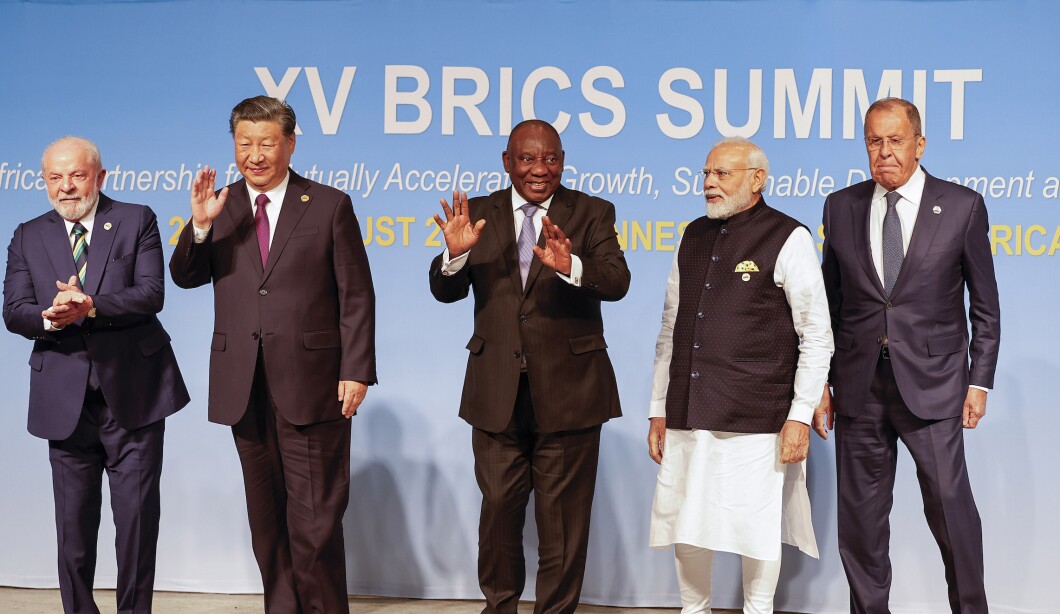
China issued a condemnation of retired Indian military officials over a recent visit to Taiwan, adding to a flaring pattern of disputes between the communist power and India that complicate Beijing’s plans to undercut the United States and its allies.
“China firmly opposes all forms of official interaction between the Taiwan authorities and countries having diplomatic relations with China,” Chinese Foreign Ministry spokesman Wang Wenbin said Thursday. “This is our consistent and clear position. We hope the country concerned will abide by the one-China principle, prudently and properly handle Taiwan-related issues, and refrain from having any form of military and security cooperation with Taiwan.”
SENATE CONSIDERS MOVING SPENDING BILLS FORWARD, SETTING UP FIGHT WITH HOUSE GOP
That protest came after a curious delay; the event took place on Aug. 8, when the three retired military officials attended a security forum hosted by the Taiwanese foreign ministry. It coincides with a report that Chinese General Secretary Xi Jinping will not attend the G20 Summit that Indian Prime Minister Narendra Modi will host next week in New Delhi, just weeks after the two leaders met in South Africa on the sidelines of a BRICS summit perceived as a keystone of Xi’s “attempt at an alternative world order” led by China.
“From Xi Jinping’s perspective, it’s all about cost-benefit analysis,” the U.S. Institute of Peace’s Andrew Scobell, an expert in Chinese foreign relations, observed to the Washington Examiner. “He sees more potential downside [than] upside. And it’s not going to be as friendly. It’s not going to be a friendly crowd, the way it was at the BRICS.”

Even Xi’s meeting with Modi on the sidelines of the BRICS summit last week ended on a sour note, as the two governments engaged in a public dispute about which side requested the conversation.
“If the reports are correct, it would indicate that Xi evidently doesn’t see sufficient value in attending the Summit in Delhi,” Observer Research Foundation America executive director Dhruva Jaishankar wrote in an email to the Washington Examiner. “This suggests efforts at a Chinese thaw with India (as well as with other G20 attendees such as the U.S. and Japan) have not yielded enough for Xi to warrant attending and meeting with his counterparts.”
If the experience in New Delhi appears less-than-amiable to Xi, his management of China’s relationship with India would hold at least part of the explanation. A border dispute dating back to a Sino-Indian war in 1962 has broken out into multiple melees between Chinese and Indian forces in recent years, including a violent clash in 2020 that resulted in the deaths of 20 Indian soldiers, according to Indian defense officials, which sharpened India’s mistrust for its Chinese Communist neighbor.
And so, India stands not only as an economic heavyweight among developing countries — the “I” in BRICS, with Brazil, Russia, China, and South Africa — but also a keystone member of the Quad with the United States, Japan, and Australia.
“I think organizations like BRICS are becoming more of a friction point between India and China than a binding agent,” the Heritage Foundation’s Jeff Smith, who directs the conservative think-tank’s Asian Studies Center, told the Washington Examiner. “I think they’re increasingly seeing India as a pro-U.S. spoiler that is undermining progress.”
Instead, Chinese officials needled Modi’s team by publishing a map that reiterated the communist regime’s claim to territory that India regards as its own. “We hope the relevant side can stay objective and calm,” said Wang, the foreign ministry spokesman.
In parallel, Indian media outlets put a spotlight on satellite imagery captured by a private U.S. company that suggests Chinese forces are fortifying their positions along a disputed border in anticipation of “an eventuality of hostilities,” as a retired Indian lieutenant general told the Hindustan Times this week.
CLICK HERE TO READ MORE FROM THE WASHINGTON EXAMINER
“This is a major major initiative under Xi Jinping,” Scobell said. “To go back to another reason for [Xi skipping the G-20 summit] is Xi probably feels like he said his piece to his Indian counterpart, and . . . there’s no nothing more to be gained from going to India at this point.”
Such aloofness comes at a cost, some analysts believe. “In the process they’re snubbing one of the key countries that would have to be a part of that anti-US new world order,” said Smith, the Heritage Foundation analyst. “So, they may be trying to fuel this alternative to the old order, but I think that’s going to be a difficult enterprise, when there’s so little unity among the countries that they’re trying to court. And when they’re clearly at odds with India over some of these key things.”





